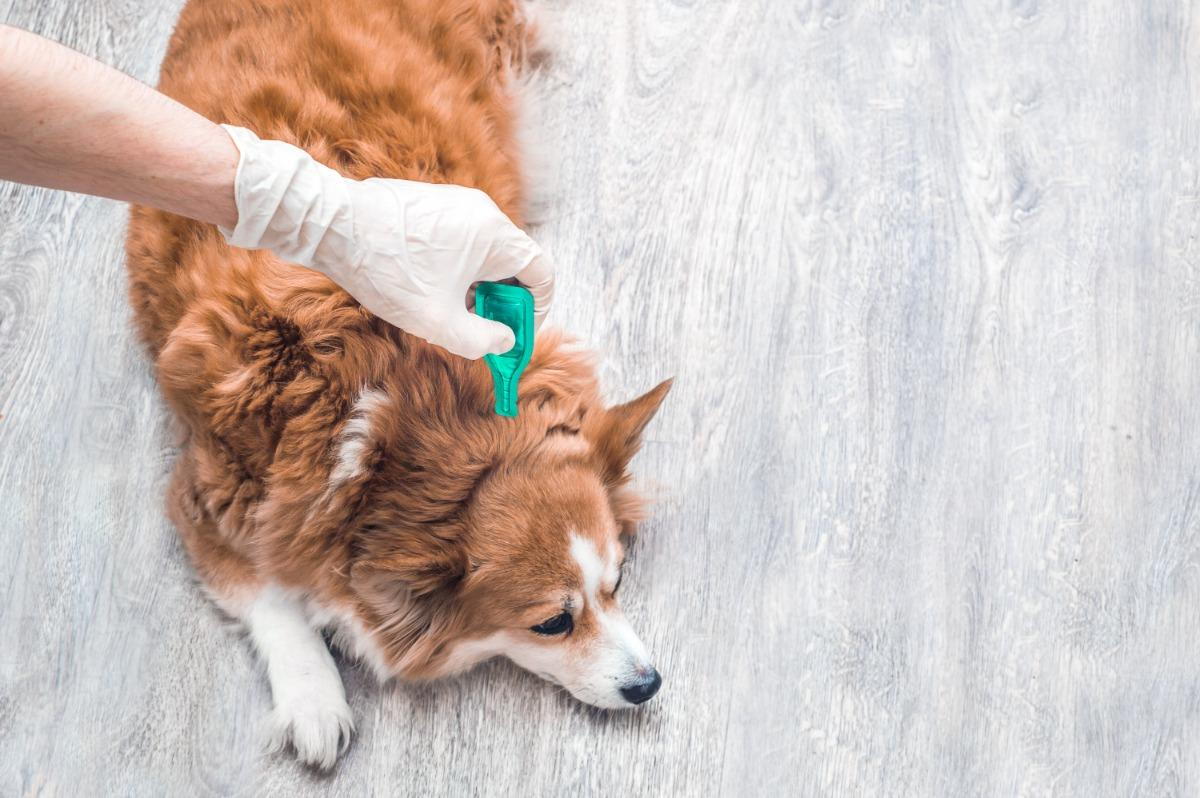Flea & Tick Prevention: Keeping Your Pets Safe from Fleas & Ticks

- posted: Jan. 02, 2024
Flea & Tick Prevention: Keeping Your Pets Safe from Fleas & Ticks
In human medicine, they say an ounce of prevention is worth a pound of cure. When it comes to treating animals, prevention may be even more important because often our pets can’t tell us that they are sick, and we only realize there’s a problem when it evolves into a serious medical condition. Fleas and ticks can spread serious diseases, so it’s important to prevent them from infesting your companion. If you live in or near Durham and are looking for a veterinarian, stop by New Hope Animal Hospital.
Tick and Flea Prevention
Ticks are hardy parasites that typically live in wooded areas. If you happen to live on a farm or in a rural or heavily forested area, you need to be especially diligent with ticks. Likewise, if you take your companion hiking, ticks could be a problem. In such cases, it’s smart not just to use flea and tick prevention treatments, but also to get your dog vaccinated against Lyme Disease, which is spread by ticks.
Ticks can be a problem in urban areas, of course. So too can fleas. Generally speaking, fleas are more of a risk in homes with multiple pets or if your companion spends a lot of time around other pets, say at a dog park. Of course, fleas can be a problem even if your pet isn’t around other animals.
When it comes to flea and tick prevention, there are a variety of medications you can give cats and dogs that will essentially make their blood poisonous. These medications will disable and disrupt the parasite’s nervous system and may also interfere with eggs, thus killing off fleas and ticks when they bite your cat or dog. Treatments can be provided orally, via a collar, with a topical cream, or through a shot.
Contact New Hope Animal Hospital in Durham, NC
If fleas and ticks have already infected your pet, shampoos can kill them off. If a tick must be removed, it’s best to work with a veterinarian. If the tick is removed improperly, it could cause complications later on. If you and your pets reside near Durham and you want to speak with a veterinarian, call New Hope Animal Hospital.

- posted: Jan. 02, 2024
Flea & Tick Prevention: Keeping Your Pets Safe from Fleas & Ticks
In human medicine, they say an ounce of prevention is worth a pound of cure. When it comes to treating animals, prevention may be even more important because often our pets can’t tell us that they are sick, and we only realize there’s a problem when it evolves into a serious medical condition. Fleas and ticks can spread serious diseases, so it’s important to prevent them from infesting your companion. If you live in or near Durham and are looking for a veterinarian, stop by New Hope Animal Hospital.
Tick and Flea Prevention
Ticks are hardy parasites that typically live in wooded areas. If you happen to live on a farm or in a rural or heavily forested area, you need to be especially diligent with ticks. Likewise, if you take your companion hiking, ticks could be a problem. In such cases, it’s smart not just to use flea and tick prevention treatments, but also to get your dog vaccinated against Lyme Disease, which is spread by ticks.
Ticks can be a problem in urban areas, of course. So too can fleas. Generally speaking, fleas are more of a risk in homes with multiple pets or if your companion spends a lot of time around other pets, say at a dog park. Of course, fleas can be a problem even if your pet isn’t around other animals.
When it comes to flea and tick prevention, there are a variety of medications you can give cats and dogs that will essentially make their blood poisonous. These medications will disable and disrupt the parasite’s nervous system and may also interfere with eggs, thus killing off fleas and ticks when they bite your cat or dog. Treatments can be provided orally, via a collar, with a topical cream, or through a shot.
Contact New Hope Animal Hospital in Durham, NC
If fleas and ticks have already infected your pet, shampoos can kill them off. If a tick must be removed, it’s best to work with a veterinarian. If the tick is removed improperly, it could cause complications later on. If you and your pets reside near Durham and you want to speak with a veterinarian, call New Hope Animal Hospital.
Visit Our Office
New Hope Animal Hospital
5016 Durham-Chapel Hill Blvd
Durham, NC 27707

